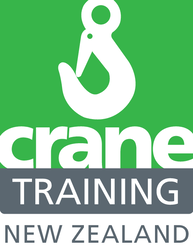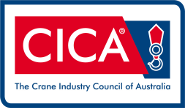|
This month’s Word from the President is somewhat long due to the busyness of the industry.
I did, however, attend the Crane Industry Council of Australia’s three-day conference held in Hunter Valley, NSW. While they seem reasonably comfortable with their lot in life, they also have roading access issues that they’re working through. It seemed to me that we are the luckier of the two Associations; they’ve multiple states with multiple individual state requirements, and we don’t. So, we’re a little bit blessed in that regard. I was also given the opportunity to present on the New Zealand crane scene. I talked about our current political scene and economic environment, and the challenges that come with the size of our country and the distance between us and the rest of the world. CLICK HERE to read the full article. While Kirsten Davidson admits she’s not as long in the tooth as some of her industry colleagues, she’s certainly up for the challenge of Crane Association Council.
Having only moved from South Africa to New Zealand three years ago, mush of Kirsten’s 27 years’ experience in sales and marketing has been in the international setting. In 1992, she was a Mitsubishi Liaison Officer in Zimbabwe in charge of dealer management for the corporation’s vehicle business, and took the lead on contract negotiations for the export and import of products, among other things. More than a decade later, and she was asked to set up an office in Dubai, United Arab Emirates by crane manufacturer The Manitowoc Company. That more than 10-year stint gave Kirsten a varied role; independently managing the territories of Qatar, Kuwait & Egypt to East Africa (Kenya, Tanzania, Uganda) and Angola; generating and driving new sales’ leads; managing and building customer / dealer relationships at a senior level. CLICK HERE to read the full article. Two pieces of legislation are under consideration for repeal following the Ministry of Business, Innovation and Employment’s (MBIE) extensive, multi-industry consultation.
The Health and Safety in Employment (Pressure Equipment, Cranes, and Passenger Ropeways) Regulations 1999 and the Amusement Device Regulations 1978 will likely be replaced by a single set of regulations that applies to both types of plant in the manner of the Australian Model Regulations, with appropriate modifications for the New Zealand context. So states the MBIE’s discussion document, released in July 2019, titled Implementing the Health and Safety at Work Act 2015: Better Regulation Plant, Structures and Working at Heights. The Crane Association were asked, alongside other key stakeholders across New Zealand’s main industries, to make a submission on MBIE’s document. CANZ Councillor, Stephen Broomfield, chairs the Association’s Pressure Equipment, Cranes, and Passenger Ropeways (PECPR) working group and worked on the submission to modernise the regulations. CLICK HERE to read the full article. Striving to better one of the smallest entities within the division of Fletcher Concrete and Infrastructure Ltd, Golden Bay Cement’s (GBC) newly appointed Maintenance Manager is focussing on CPD.
Antony Coleman has been with New Zealand’s only cement manufacturer for the past five years, replacing the former Manager and taking on the responsibility as Crane Controller, too. Creating policies and procedures, managing the budget, writing reports and being responsible for a department comprising nearly 30 people – it’s a step up from being the Electrical Team Leader. “So, we’re a pretty big department,” he says. “GBC is a very nice place to work, has a great culture; you can see quite a few of the members undertook their apprenticeships there and basically retired here. CLICK HERE to read the full article. The Crane Association of New Zealand’s Past President, Scott McLeod, discusses why fatigue and its oncoming signs should not be ignored in this month’s The Technical Corner.
Russian roulette is a term Scott McLeod doesn’t use lightly. But being the risk adverse McLeod Cranes & Hiabs Managing Director that he is, the reference’s imagery helps Scott nail his point home – operating while fatigued is like playing Russian roulette. He’s not talking about being tired, but describing the extreme tiredness that results from mental or physical exertion or illness. “Being tired is certainly a concern, who isn’t tired sometimes? But it’s the first warning sign of becoming fatigued – being worn out or disengaged from what you’re doing,” Scott says. CLICK HERE to read the full article. |
Archives
June 2023
Categories
All
|
|
|
|
NZBN: 9429042812272
The Crane Association of New Zealand (Inc.) has membership or reciprocal membership with the following associations

 RSS Feed
RSS Feed










